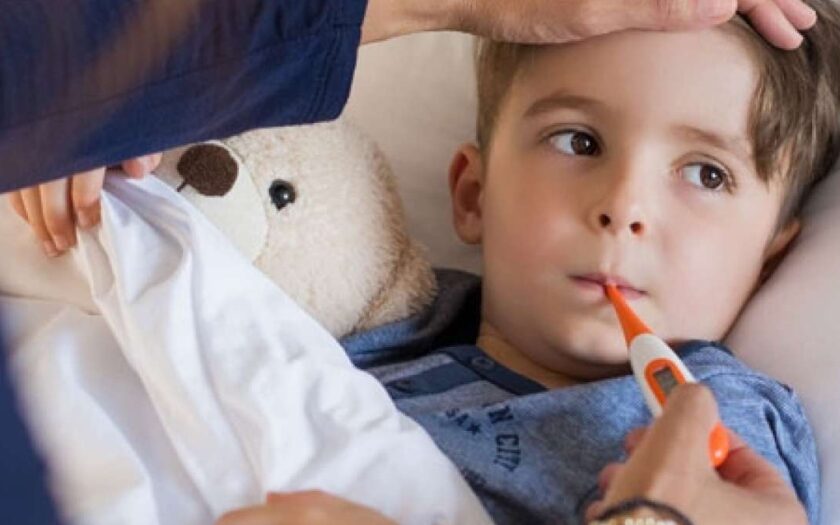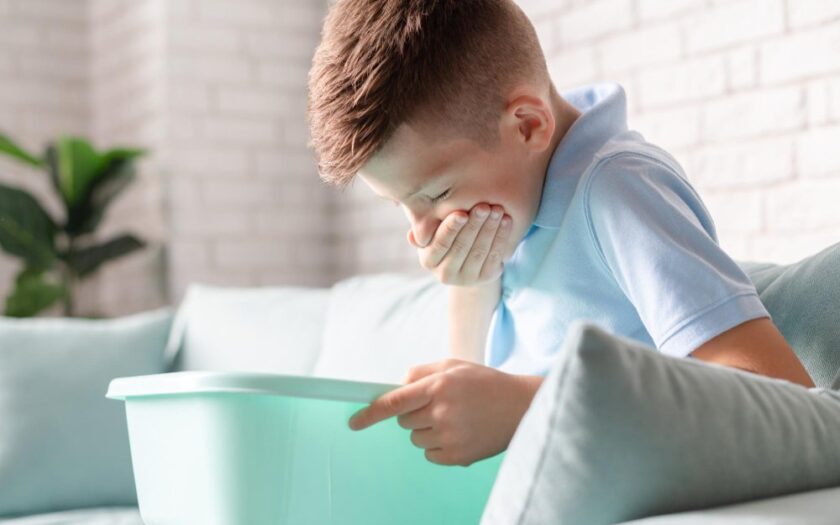A fever, or high body temperature, is often the body’s natural response to infection and a sign that the immune system is working. While it can be concerning, most fevers are not harmful and resolve on their own. To manage a fever, ensure the person stays hydrated with water, clear fluids, or electrolyte solutions, and dress them in light, comfortable clothing. Over-the-counter medications like acetaminophen or ibuprofen can help reduce the fever and alleviate discomfort. Rest is essential for recovery. However, if the fever is very high, lasts more than a few days, or is accompanied by severe symptoms, it’s important to seek medical advice promptly.
Managing a Fever in Children
Parents often worry when their child’s temperature rises, but a fever usually isn’t harmful. In fact, it’s often the body’s natural response to fighting infections.
Signs & Symptoms of a Fever
A child with a fever may display the following symptoms:
- Fussiness
- Discomfort
- Warm skin to the touch
- Flushed appearance
- Sweating
What to Do for a Fever
If your baby is under 3 months old and has a temperature of 100.4°F (38°C) or higher, contact the doctor immediately. If you cannot reach the doctor, go to the emergency room.
Keep children with a fever at home from school or childcare until their temperature has returned to normal for at least 24 hours. If your child is uncomfortable, here are some ways to help:
- Offer fluids to prevent dehydration.
- Administer acetaminophen or ibuprofen according to the doctor’s instructions. Do not give aspirin, as it is linked to a rare but serious illness called Reye syndrome.
- Avoid using rubbing alcohol or cold baths to lower the fever.
- Dress your child in lightweight clothing and cover them with a light sheet or blanket.
- Allow them to eat if they want, but don’t force them if they have no appetite.
- If your child is vomiting or has diarrhea, consult the doctor about using a children’s oral rehydration solution.
- Ensure plenty of rest for your child.
When to Seek Medical Care
Seek medical attention if:
- Your baby is under 3 months old with a temperature of 100.4°F (38°C) or higher.
- An older child with a fever:
- Appears very ill
- Develops a rash
- Has persistent diarrhea and/or repeated vomiting
- Shows signs of dehydration (reduced urination, lack of tears when crying, decreased alertness, and activity)
- Has a fever lasting more than 5 days
- Has a chronic medical condition, such as sickle cell disease or cancer
Can Fevers Be Prevented?
All children experience fevers occasionally, and they usually recover within a few days. The main goal is to keep your child comfortable until the fever subsides and seek medical care if necessary.



